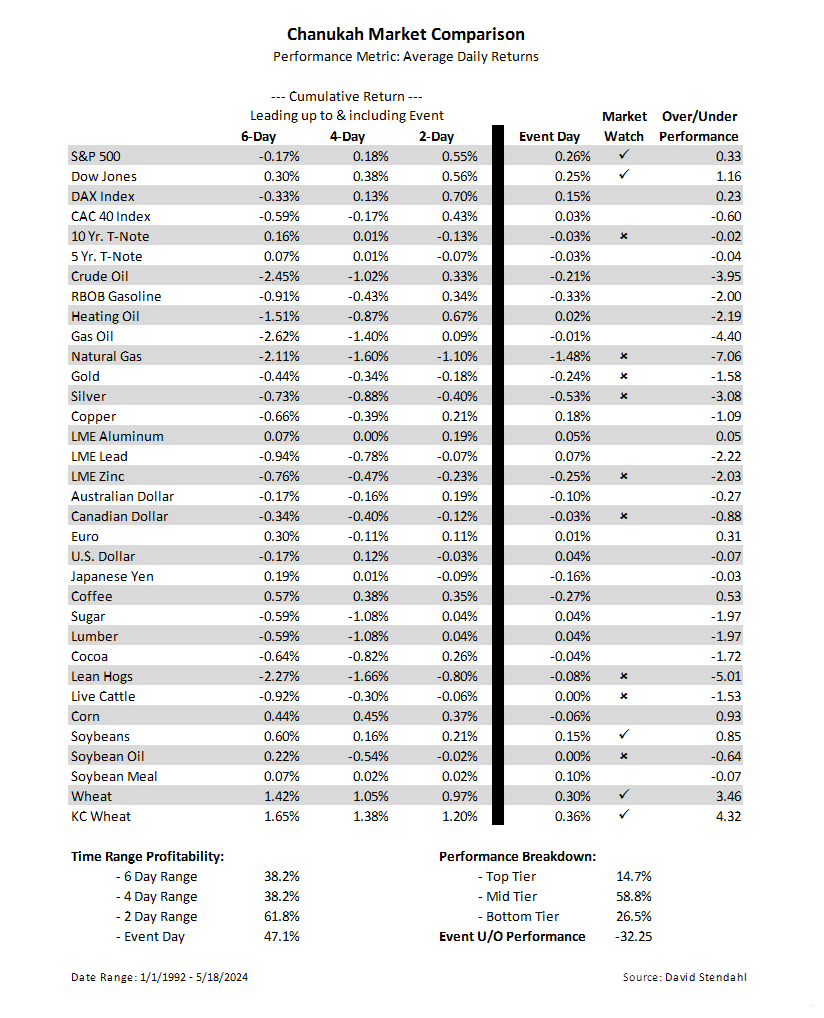Event: Chanukah
The Jewish holiday Chanukah or Hanukkah is often called the Festival of Lights, celebrates with the lighting of the menorah, traditional foods, games, and gifts. It begins on the 25th of Kislev on the Hebrew calendar and usually falls in November or December. Because the Hebrew calendar is based on the lunar cycle, the dates of Jewish holidays according to the Gregorian calendar change from year to year. In total, Chanukah spans eight days; it is unlikely that any given family will have a major family celebration for every one of those nights, but they are almost certain to light Chanukah candles and say blessings each night.
The questions is … how do the markets perform heading into the first night of Chanukah?
Market Comparision
How do the markets perform leading up to the beginning of Chanukah? The analysis table below breaks down each of the 30+ markets into four separate trading periods. These time frames span 6-days, 4-day, 2-days, and the event day itself. The return performance for each time frame is measured against its normal performance during the year to calculate a final over or underperformance return. This metric quantifies, in percentage points, the advantages or disadvantages associated with Chanukah. Markets highlighted with a checkmark or an “x” should be closely monitored for potential strength or weakness heading into the event.

Calendar Breakdown by Events
All trading involves risk. Leveraged trading has large potential rewards, but also large potential risk. You must be aware of the risks and be willing to accept them in order to invest in the futures and options markets. Don’t trade with money you can’t afford to lose. This is neither a solicitation nor an offer to Buy/Sell futures or options. No representation is being made that any account will or is likely to achieve profits or losses similar to those discussed. The past performance of any trading system or methodology is not necessarily indicative of future results.
Our strategies have not been developed based on knowledge of or with reference to your particular circumstances, such as financial position, goals, risk-reward preferences, tax situation, brokerage arrangement, investment or trading experience, and so forth. Hence no content or model published here constitutes a recommendation that any particular security, portfolio of securities, transaction, or investment strategy is suitable for any specific person. You alone are solely responsible for determining whether any investment, security or strategy, or any other product or service, is appropriate or suitable for you based on your investment objectives and personal financial situation. More
